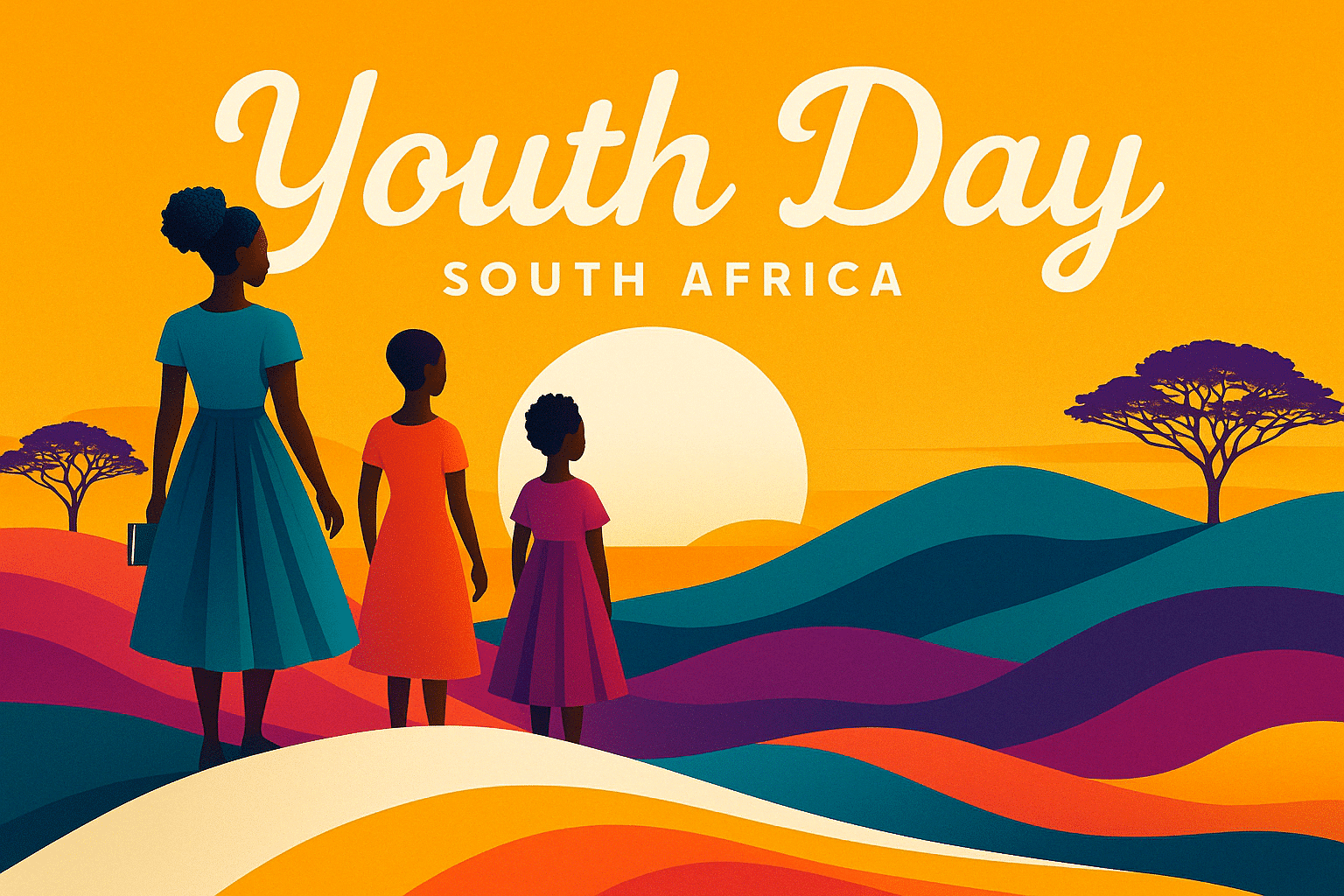What is Youth Day in South Africa?
Youth Day is observed every year on 16 June in South Africa. The day commemorates the Soweto Uprising of 1976, when thousands of Black students protested against the apartheid regime’s decision to enforce Afrikaans as the medium of instruction in schools. Their peaceful protest was met with brutal police violence, resulting in the deaths of many young people.
Youth Day honors the courage of these students and highlights the role of young people in the struggle for freedom. It is also a moment to reflect on the challenges facing today’s youth, including education, unemployment, and inequality. While rooted in historical tragedy, the day now carries a message of empowerment and responsibility.
History and Origin
On 16 June 1976, an estimated 20,000 students marched through the streets of Soweto. They opposed a government policy that made Afrikaans a compulsory language in their schools. For many, Afrikaans was the language of the oppressor, and the policy symbolized a broader system of injustice under apartheid.
The protest began peacefully but turned violent when police fired live ammunition into the crowds. Many were injured or killed. One of the most powerful symbols of that day is the photograph of 13-year-old Hector Pieterson, carried by a fellow student after being shot. His sister, Antoinette Sithole, ran beside them. That image was seen around the world and became a turning point in the global response to apartheid.
Youth Day became an official public holiday in post-apartheid South Africa to ensure that the bravery of these students would never be forgotten. Today, it also serves as a platform to speak about the future ; a future where young people are educated, safe, and heard.
Who participates in Youth Day?
- Students and teachers: Learn about the Soweto Uprising and reflect on current issues in education.
- Government leaders: Deliver speeches, host national events, and support youth-focused policies.
- Community members: Attend local memorials, cultural performances, and public gatherings.
- Youth organizations: Organize dialogues, campaigns, and workshops on leadership and rights.
- Artists and musicians: Share songs, poetry, and visual works that honor the spirit of resistance.
Slogans and Themes
Slogans include “Honoring the Past, Inspiring the Future,” “Youth Power: Driving Change,” and “Remembering 1976.” Each year, a different theme may be chosen to reflect ongoing concerns such as education reform, youth unemployment, mental health, or civic engagement.
The message remains consistent: young people have the ability and the right to shape their society.
Colors, Symbols, and Patterns
Colors
- Black: Honors the Black students who led the protests.
- Red: Represents the bloodshed and sacrifice.
- Green and yellow: Symbolize growth, energy, and a new future.
Symbols
- Raised fist: Stands for unity, resistance, and power.
- Books and pens: Represent access to education and freedom of thought.
- Photographs from 1976: Keep the memory of the uprising visible and alive.
Patterns
- African textile prints: Celebrate culture and identity.
- Youth-centered designs: Use bold fonts, energetic lines, and vibrant imagery.
- Graffiti and mural art: Reflect the voices of today’s youth in public spaces.
Most Used Hashtags
- #YouthDaySA
- #June16
- #SowetoUprising
- #YouthEmpowerment
- #HectorPieterson
How do you celebrate Youth Day?
- Attend memorial events: Join public ceremonies and listen to speakers from the community.
- Visit museums and landmarks: Explore the Hector Pieterson Museum and similar sites.
- Volunteer for youth programs: Give time to mentorship, education, or community care.
- Learn and share: Read about 1976, then talk with friends or family about its meaning today.
- Support youth initiatives: Contribute to campaigns, grants, or scholarships for young leaders.
Why is Youth Day important?
Youth Day is a day of remembrance, but also of forward thinking. It honors the students who died for the right to be taught in a language they understood. It reminds people that young voices matter and that injustice must be challenged at every level.
The issues raised in 1976 remain relevant today. Education, opportunity, and equality are still not guaranteed for all. Youth Day is a chance to recommit to these goals and to uplift a generation that is ready to lead with courage, knowledge, and purpose.
Contact Info
June 16: Youth Day (South Africa)
Why do you keep falling for the same type?
Read the article Lovemaps: the hidden blueprint of our love.

